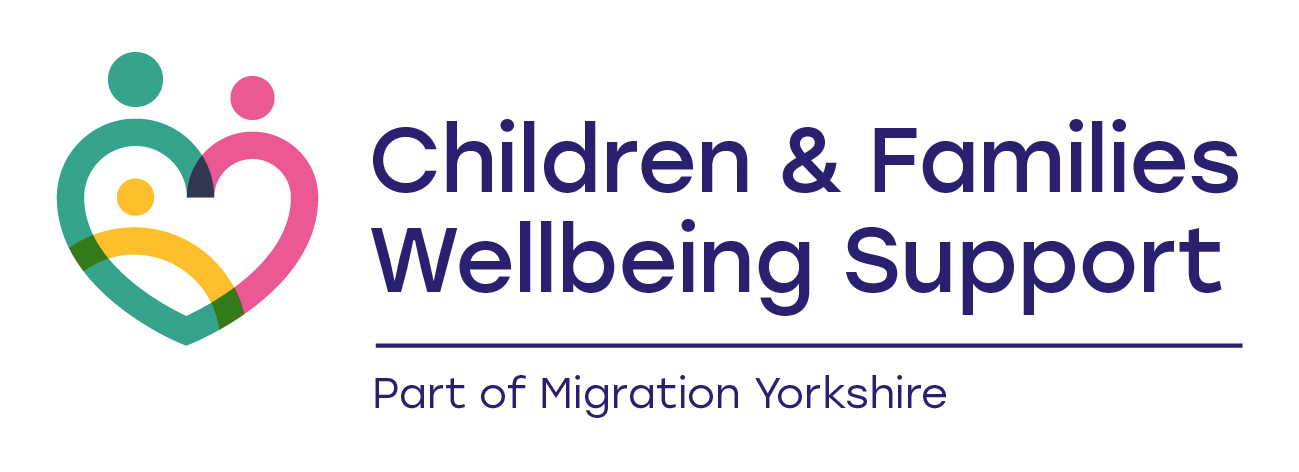Children and families wellbeing support


Working with resettled refugee families: wellbeing and mental health support
The Children and Families Wellbeing Project (CFW), set up by Migration Yorkshire in 2018, provides specialist refugee mental health practitioners to address the complex trauma faced by some young resettled refugees, that can impact on their family life, school attendance or behaviour and ability to integrate.
We use child and family therapists alongside specialist interpreters as part of the therapy team:
- Interpreters undergo specific training and supervision to ensure professional clinical relationships are maintained.
- Project therapists liaise between the family and the children’s schools, providing training to staff and developing more constructive and supportive relationships and communication between each party.
We also offer training and awareness-raising to other organisations that support refugees.
Read this recent evaluation of the project to find out how trauma-informed therapy is helping refugee children succeed in schools.
Videos of skill-share workshops run by Children and Family Wellbeing therapists
Migration Yorkshire, the Refugee Council Therapeutic Service and Solace held a conference in October 2020 to celebrate the CFW Project. These four videos show the impact of our work and include skills share workshops run by our therapists. They should be of interest to practitioners, schools, partners, funders and policy makers.
If you have any problems viewing the videos on the links below, please view directly on Vimeo.
Working with interpreters with Syrian refugees in child and family therapy settings
For most child and family therapists, the thought of working alongside an interpreter in a systemic family setting can be a daunting prospect.
Here, two Refugee Council child and family therapists facilitate a reflective conversation with our two Arabic speaking interpreters Rafa Qaid and Jamela Sarb.
The conversation explores themes such as:
- How to introduce the interpreter into the system.
- Engagement and trust.
- Managing alliances.
- Exploring how interpreters manage multiple voices in the room – including children’s voices.
If you have any problems viewing the videos on the links below, please view directly on Vimeo.
Supporting refugee students through group work and staff training in schools
Philippa Kempe and Anne Burghgraef in conversation about how the Children and Families Wellbeing Project has helped unsure young people and families to engage with support through its collaboration with schools.
Their conversation covers referral routes, barriers to take up of support and how they got round these, what makes this project different in being responsive and engaging unsure clients.
They share case examples involving a high school group, and collaborative work with a school–staff training/consultation to support positive whole school approaches to refugees, joint engagement of parents, joint approach to signposting and onward referral and follow-up work by the school including establishment of an ongoing group.
If you have any problems viewing the videos on the links below, please view directly on Vimeo.
Working systemically with resettled refugee families: an approach
Hernan Sosa-Canal and Mona-Karina Theodosius share their experience of the systemic model that underpins the Children and Families Wellbeing Project and how, as family therapists, they have realised theory in practice.
They give an introduction to systemic practice and why the project was conceptualised using this model. They also demonstrate practitioner reflective discussion involving two casework examples to demonstrate systemic ideas and working, reflecting on what they’ve learnt: what has worked well, what less well, and the direction ahead.
If you have any problems viewing the videos on the links below, please view directly on Vimeo.
Working with refugee children in schools
Agnes Ndebele and Kate Graham discuss supporting children to overcome emotional barriers to effective learning and how to bridge the language communication gap between schools and families.
Agnes and Kate interview each other to showcase the unique needs of a refugee child in a school, what schools can do and what the project can do to help both the child and the family.
They answer questions such as:
- How resettled children are different from an English child with a long history of trauma.
- The school's role and impact in these situations.
- Schools with a high number of refugee children on their roll can often be the same ones that struggle with a lack of resources – what are the success factors for ensuring refugee children thrive?
- How the project is different from school counselling services and in-house provision. What should a teacher who is worried about a refugee child do?
If you have any problems viewing the videos on the links below, please view directly on Vimeo.
